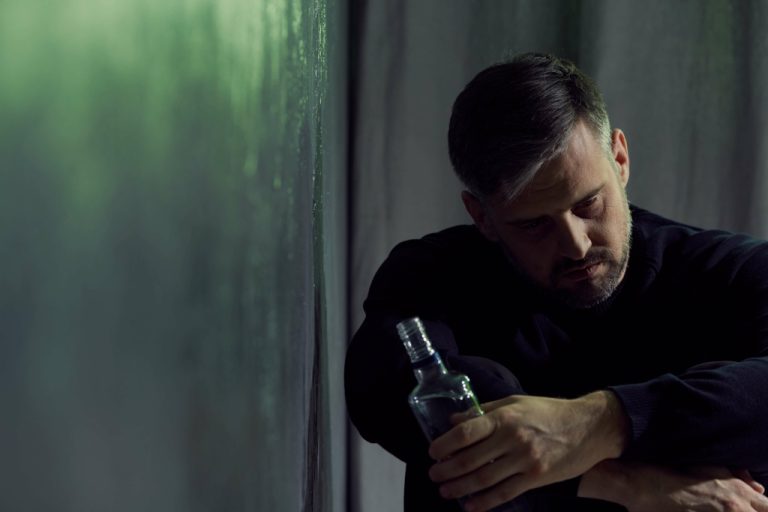Night sweats, insomnia, and frequent sleep interruptions are to be expected. These sleep disturbances occur because your body is adjusting to the absence of alcohol. Soon you’ll be on your way to more restful sleep, but in the meantime, developing a relaxing alcohol-free nighttime routine can help minimize discomfort. Like any big change, there might be times where it doesn’t feel easy, so it’s important to reward yourself with something as you make progress.
Residential Detox
Anyone stopping alcohol should discuss their plan with a doctor and seriously consider undergoing a medically-supervised detox. Medical detox ensures you will be as safe as possible by providing 24/7 monitoring that helps recognize and treat complications effectively and as rapidly as possible. Alcohol can worsen depression and be an emotional crutch, making it difficult to experience true happiness outside of drinking. Stopping alcohol can make you feel happier by allowing you to experience positive emotions without alcohol.
Avoid Summer Alcohol Traps & Stay Fit
- Fortunately, on December 19, 2016, I got off that hamster wheel for good.
- An important first step is to learn more about alcohol use disorder and your treatment options.
- Take time at the very beginning to write down all of your reasons for wanting to quit drinking.
- Triggers can be social situations, stress, boredom, or even specific environments like bars or parties.
You may have to avoid certain beverages or all alcoholic drinks completely. We group a hundred kinds of beverages under the label “alcohol.” The truth is there are many different types of alcohol and many different circumstances under which we drink. Some combinations will prove more dangerous than others, and it’s up to us to recognize and admit our weaknesses when it comes to alcohol. But Drug rehabilitation it doesn’t have to be if you implement these four strategies for avoiding relapses. Implementing these new habits takes time, but reducing or eliminating your alcohol consumption is worth it. NIAAA’s website is full of practical research and science-based methods to help you stop drinking.
Stay Present.
Medical supervision becomes essential with physical withdrawal symptoms or heavy long-term drinking. Long-term craving reduction happens through lifestyle changes addressing underlying triggers. Regular exercise, adequate sleep, stress management, and healthy relationships all reduce craving frequency and intensity over time.
Holiday Heart: Why Your Heart Races After Drinking Alcohol

Chronic alcohol abuse often leads to liver disease, cardiovascular problems, mental health disorders, and impaired cognitive function, among other health issues. AUD can also strain relationships, impact employment, and diminish overall quality of life. Giving up alcohol can have a significant impact on your mental health, especially if you’ve been using alcohol as a coping mechanism. https://www.estudiandoenlaweb.com/understanding-mental-health-triggers-heels-care/ Watch for changes in your mood, emotions, or mental well-being along the way.

Where can I find professional support to stop drinking?
These signs of alcohol withdrawal occur because your nervous system, heart rate, and other internal functions are recalibrating. In essence, withdrawal is your body’s way of healing from consistent exposure to an external substance. The first steps include recognizing the signs that it’s time to quit, identifying your personal reasons for quitting, and understanding the benefits of making this change.
Groups such as Alcoholics Anonymous (AA) and SMART Recovery offer meetings, social events, and accountability. They also provide a structured way to share personal stories and hear from others on a similar path. While the abstinence stage of withdrawal causes mostly physical symptoms, post-acute withdrawal is very psychological and emotional.
After you’ve worked out your triggers, it’s time to make a plan to deal with them. It’s not easy to quit when you live with someone who plans to continue drinking. There are ways, however, to navigate situations like this, and they all involve strong communication and boundary-setting. For a lot of us, alcohol use is closely intertwined with underlying mental health conditions like anxiety, depression, or trauma.
An easy way to keep track of how you’re doing and keep your motivation how to quit drinking up is to give yourself short-term goals. Perhaps you could aim firstly for an alcohol-free week, then an alcohol-free month, for example. Similarly, try to identify the times when you would usually drink and fill the gap with something else. Would you usually head to the pub after work on a Friday evening? You could organise to meet friends at the cinema instead. 12-step facilitation therapy is an engagement strategy used in counseling sessions to increase an individual’s active involvement in 12-step-based mutual-support groups.
Step 7: Return to Your Plan If You Have a Slip-Up
Talk to your doctor about how that goal could work for you. With less alcohol in your life, you’re likely to have clearer skin, better sleep, and you may see a boost in your overall mood. Some people also lose weight as they taper off their drinking. You might realize that you look forward to weekend mornings now instead of dreading hangovers and hangxiety. Spending quality family time or pursuing our hobbies becomes much more fulfilling than alcohol use.